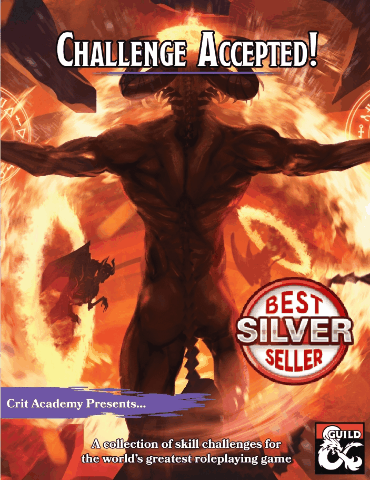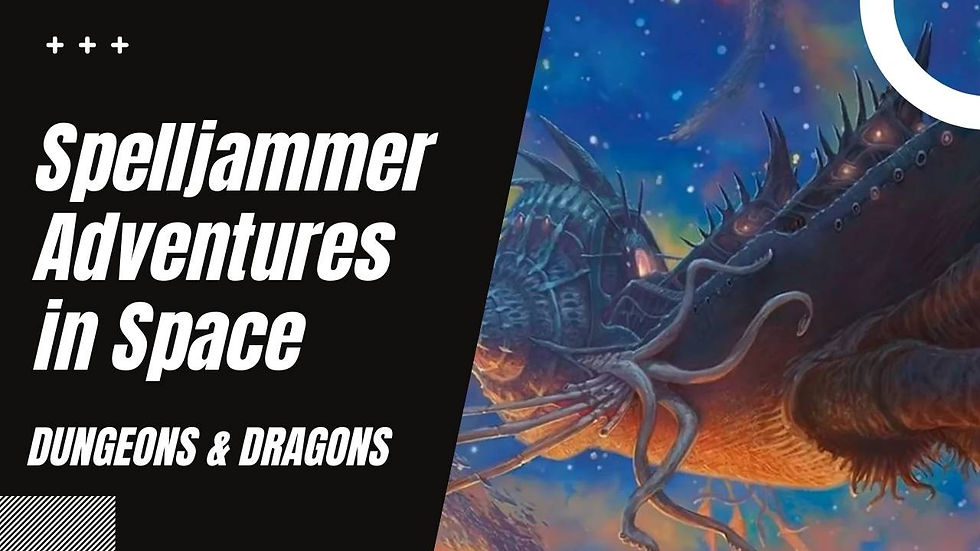5 Tips for Great Dungeons and Dragons Exploration
- Justin Handlin

- Oct 30, 2021
- 3 min read

In Dungeons and Dragons, there are three primary pillars of the game. These are three fundamental aspects that make up the roleplaying experience. These are combat, roleplay, and exploration. The first two get a lot of attention in most games, but the third is one that is generally lacking in many games. The exploration pillar is arguably the most important pillar in Dungeons and Dragons, outside of combat. This is because, in my opinion, this is what separates a good Dungeon Master from a great one. A Dungeon Master can have a butt-load of prepared material but without a good amount of exploration, it can be a rather dull experience for players. Why? Because exploration is a creative problem-solving exercise that leads to unexpected results. I've compiled 5 simple tasks that will allow you to easily improve and expand on this pillar in your own Dungeons & Dragons stories and campaigns.
Exploration Tasks:
Describe the Options. Here you want to ensure the player characters have at least two or three options to move the story forward. These can be simple options such as "The corridor ends in a T-shaped intersection". The big key here is to add a few sense descriptors to each direction. "To the left the sound of running water echoes off the walls. To the right, the stench of rotting meat and low groaning.
Get the players to inform you what their characters are doing. Ask the players what their characters are doing. This seems obvious, but follow up with one or two things they may be doing in the scene to plant some ideas in their head. "Jannette. What is your character Reylin doing? Is she drawing her weapons after hearing the oncoming footsteps, maybe seeking a place to hide, or is she doing something else". This gives direction but doesn't remove player agency.
Identify player character responses. When the characters choose a path to take, an object to interact with, or some other feature of exploration. Give the player a short description based on how a scene, event, or action is affecting the character. "Jannette, you say Reylin takes the left path. As Reylin steps down the corridor toward the sound of the running water. Her footsteps echo off the stone walls as she creeps down warily. They are quickly drowned out by the growing rumbling of water on rocks".
Interruption with obstacles/encounters. Exploration isn't much fun if the character is just running down through a complex cavern system or maze without revealing a secret, history, or other pieces of lore about the world or area. These interruptions can be combat encounters, but I encourage you to consider alternatives such as puzzles or better yet, NPCs that are part of the scene. The most common example would be some sort of sentient door. But you can just as easily have them stumble across an old mosaic or carving that reveals a bit of story about the area such as its creators or inhabitants.
Advance to the next decision point. When a player character decides to explore a part of the adventure, regardless if it's written or not, should advance the story in some way. A player that is interested in exploration and chooses to take steps into learning more about an area by wandering around should yield a reward that helps advance the next big decision they might make. If the wizard decides to explore deeper in a part of a vast library, it should be rewarded in such a way that can help them on their journey in some way. It could be a simple reveal of a big bad boss monster's weakness, or potentially a secret that a noble house is hiding, or even a simple as clues to a puzzle or other challenge that exists within the dungeon where the library is contained. Whatever you choose, exploration should help the characters in the story in some way, now or later.

Extraordinary Expeditions is a series of adventure modules designed to be used with 5th Edition. The goal is to provide a simple, flexible set of adventures that can easily be integrated into any campaign world. This is not a "campaign module", but is instead a collection of modular adventures that can be used in any setting and in any order. Back this project NOW and get a FREE adventure today!
Thank you for reading our blog. If you enjoy the content and want to support us, visit our store or follow us on social media, join us on discord, youtube, and leave us a review.
Keep your blades sharp and spells prepared heroes!
*Crit Academy is an Affiliate of Amazon, DMsguild and DriveThruRPG*















Comments